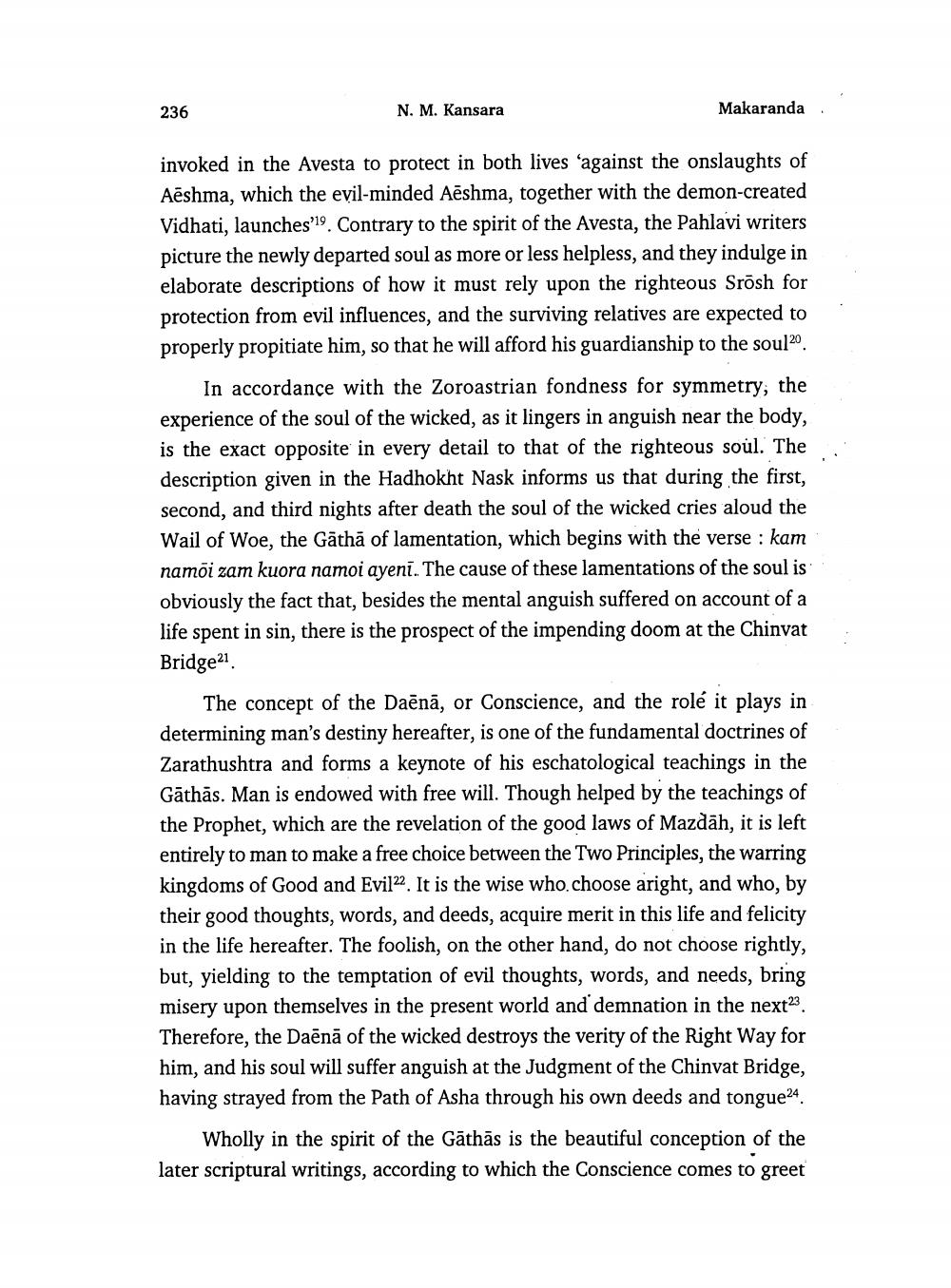________________
236
N. M. Kansara
Makaranda
invoked in the Avesta to protect in both lives against the onslaughts of Aēshma, which the evil-minded Aēshma, together with the demon-created Vidhati, launches'19. Contrary to the spirit of the Avesta, the Pahlavi writers picture the newly departed soul as more or less helpless, and they indulge in elaborate descriptions of how it must rely upon the righteous Srösh for protection from evil influences, and the surviving relatives are expected to properly propitiate him, so that he will afford his guardianship to the soul20
In accordance with the Zoroastrian fondness for symmetry, the experience of the soul of the wicked, as it lingers in anguish near the body, is the exact opposite in every detail to that of the righteous soul. The description given in the Hadhokht Nask informs us that during the first, second, and third nights after death the soul of the wicked cries aloud the Wail of Woe, the Gātha of lamentation, which begins with the verse : kam namõi zam kuora namoi ayenī. The cause of these lamentations of the soul is obviously the fact that, besides the mental anguish suffered on account of a life spent in sin, there is the prospect of the impending doom at the Chinvat Bridge21
The concept of the Daēnā, or Conscience, and the role it plays in determining man's destiny hereafter, is one of the fundamental doctrines of Zarathushtra and forms a keynote of his eschatological teachings in the Gāthās. Man is endowed with free will. Though helped by the teachings of the Prophet, which are the revelation of the good laws of Mazdāh, it is left entirely to man to make a free choice between the Two Principles, the warring kingdoms of Good and Evil22. It is the wise who choose aright, and who, by their good thoughts, words, and deeds, acquire merit in this life and felicity in the life hereafter. The foolish, on the other hand, do not choose rightly, but, yielding to the temptation of evil thoughts, words, and needs, bring misery upon themselves in the present world and demnation in the next23. Therefore, the Daēnā of the wicked destroys the verity of the Right Way for him, and his soul will suffer anguish at the Judgment of the Chinvat Bridge, having strayed from the Path of Asha through his own deeds and tongue24.
Wholly in the spirit of the Gathās is the beautiful conception of the later scriptural writings, according to which the Conscience comes to greet




